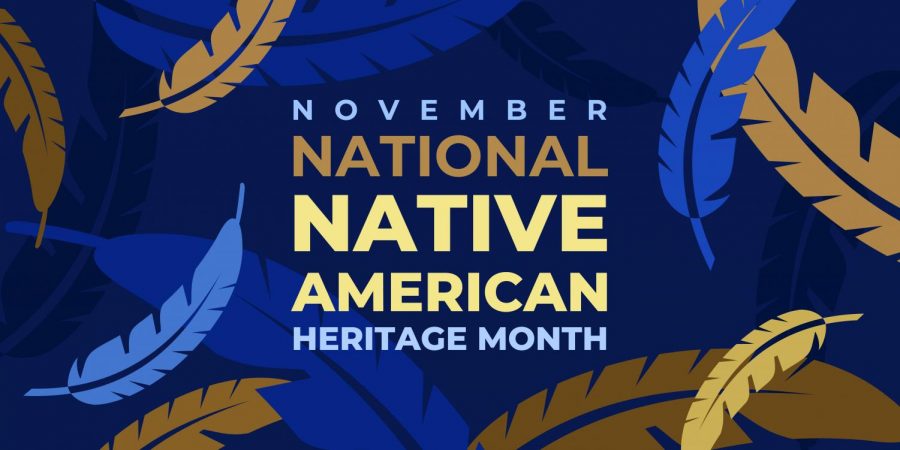Importance of listening to Indigenous people
November 15, 2021
Did you know that November is Native American Heritage Month? I didn’t.
The relationship between Native Americans and colonizers has been rocky, to say the least. And this is rightfully so. For centuries, Indigenous people have been pushed off their land, made into caricatures and their voices have been drowned out.
Centuries of mistreatment will not heal quickly, but listening to Indigenous people is a start.
Indigenous Peoples’ Day, which was just last month, has attempted to replace Christopher Columbus Day. While there are good intentions behind Indigenous Peoples’ Day, Aaron Fogleman, a professor of American history, said we “might be better off having a different day, something that’s more connected to Native American history instead of Columbus.”
And he’s right. Much of what we learn about Indigenous people and their history is whitewashed, or at least white-focused.
Take the story of Thanksgiving, for example.
As kids, we’re taught that the Native Americans helped the pilgrims grow food and survive once they came to America. In particular, a Native American named Squanto helped the pilgrims plant their crops and find the best places to fish. During the fall harvest, the Native Americans and pilgrims shared a feast, and we lived happily ever after in harmony.
Not all of this is untrue— pilgrims and Native Americans did make contact, and there was a harvest celebration— but the story of Thanksgiving as we know it is one-sided. It completely lacks the Native American perspective.
“It’s not so much about whether (the story of Thanksgiving) is true; it’s about whether we’re listening to other perspectives,” Fogleman said.
We need to listen to their story, not tell ours. Beyond the story of Thanksgiving and the stories of Native Americans in this country, we still don’t listen to Indigenous peoples on issues that impact them the most.
One of the biggest examples of this in the past few years is access to water. Even in 2021, some Indigenous peoples still do not have access to clean water. What should be a basic right is a daily battle for some Indigenous groups.
And that’s just the tip of the iceberg: Nearly 85% of Native American women will face violence; native sovereignty is not recognized; land rights are not always respected, and the list goes on.
“(The recognition of Indigenous groups) might be better than it used to be, but… what are Native American perspectives on (these issues)?” Fogleman said.
While recognition of Indigenous groups and the issues they face has increased in recent years, it’s not enough. Truthful education on these groups and the issues they face needs to start early.
“We should learn about them because they’re there, and they always have been,” Fogleman said.
Indigenous people are an integral part of our past. But Indigenous peoples shouldn’t be left in the past; they’re still here. Recognition is the least we can offer.
Active from 1990 until the mid-2000s, NIU was home to N.A.T.I.O.N.S. (Native Americans Together Insuring Our National Sovereignty), a student organization that allowed students to get involved in traditional Native American events. N.A.T.I.O.N.S. also served as a hub for learning about Indigenous cultures and issues. The club is now defunct, and former members could not be reached for comment.
The Midwest SOARRING Foundation, an organization that works with and for Indigenous groups in Illinois, also could not be reached for comment.







